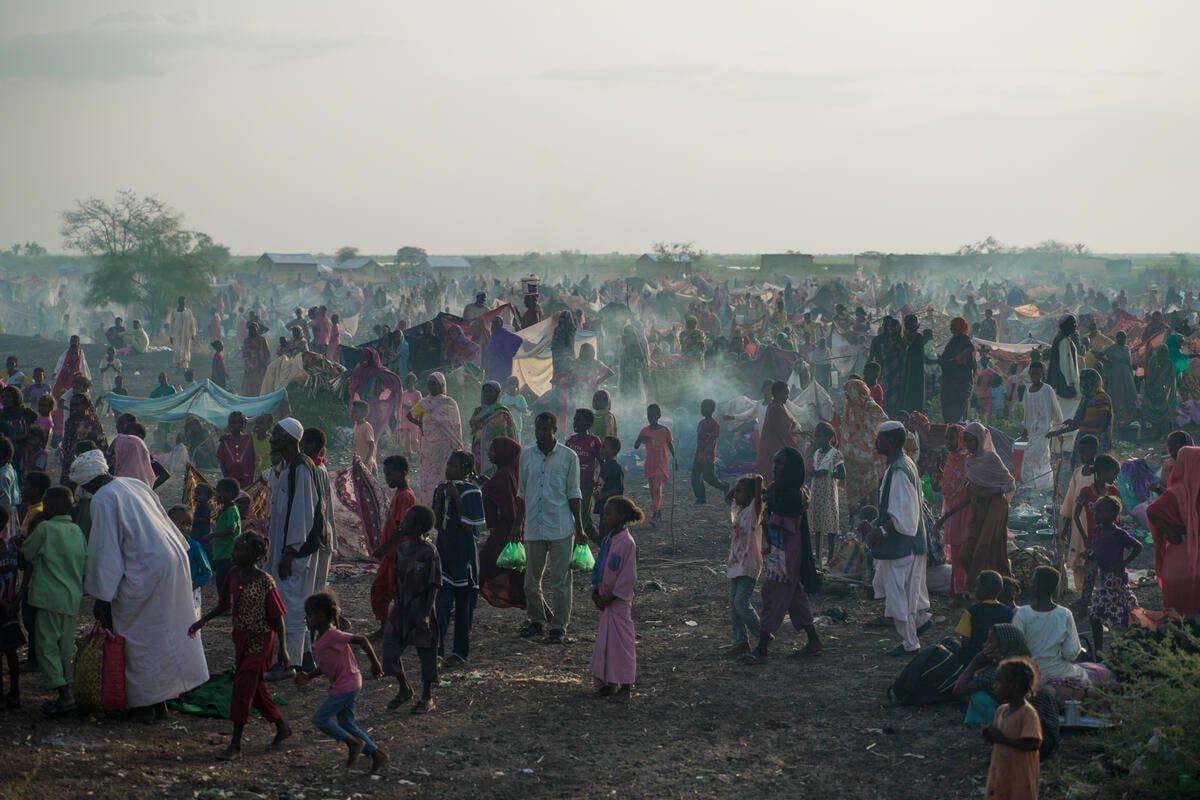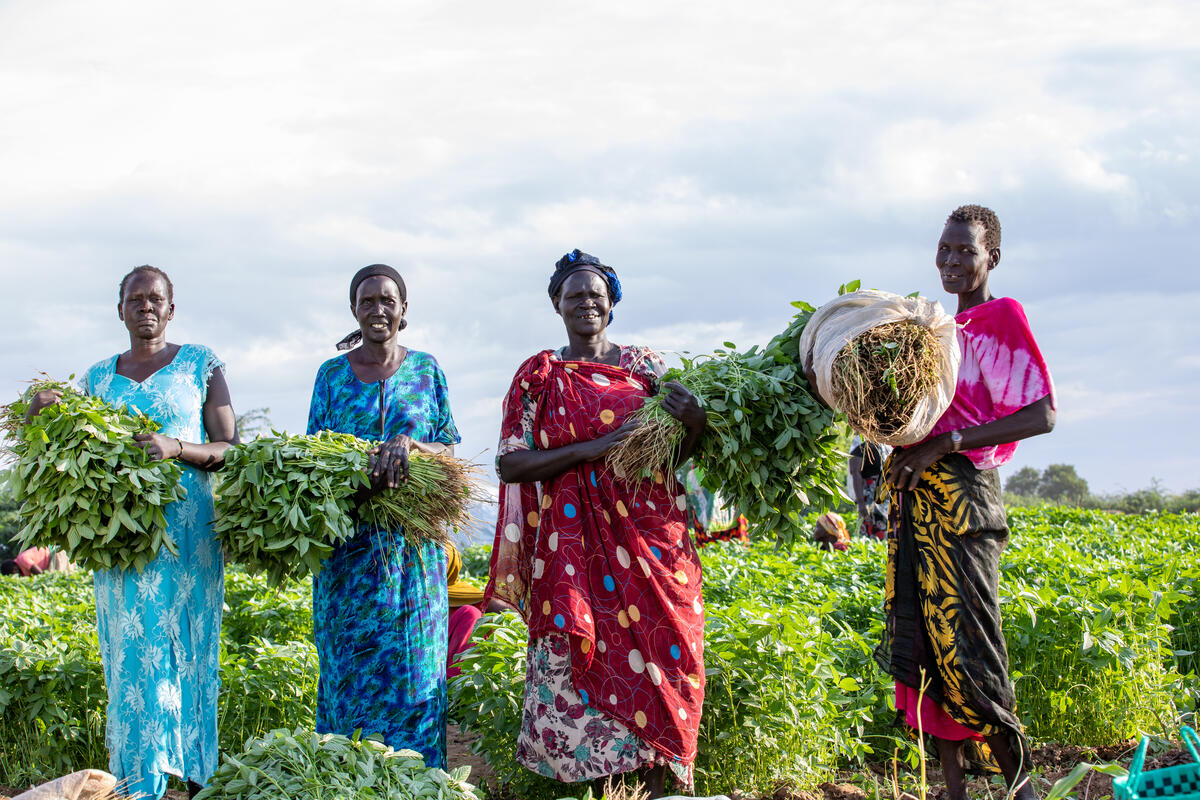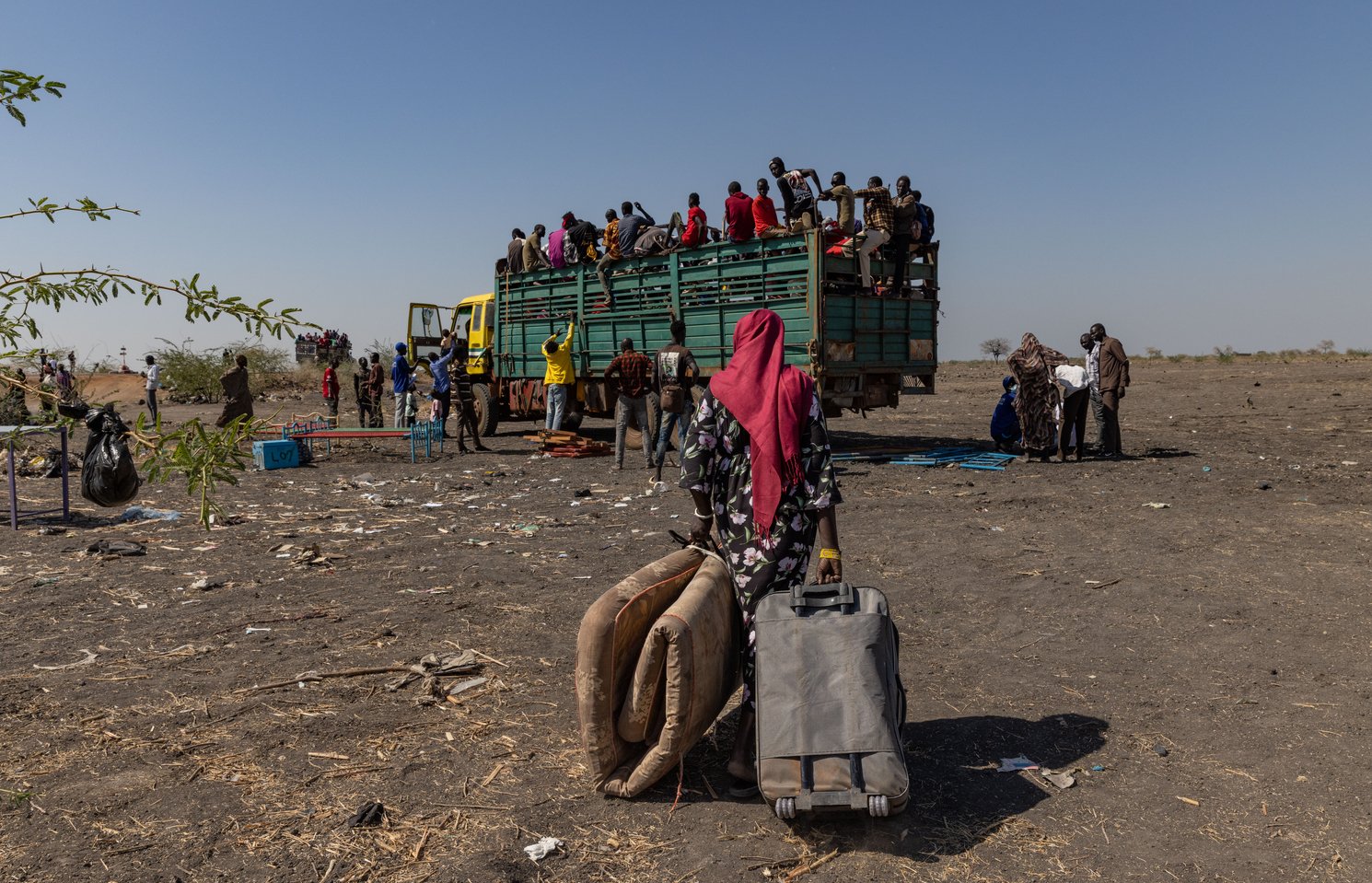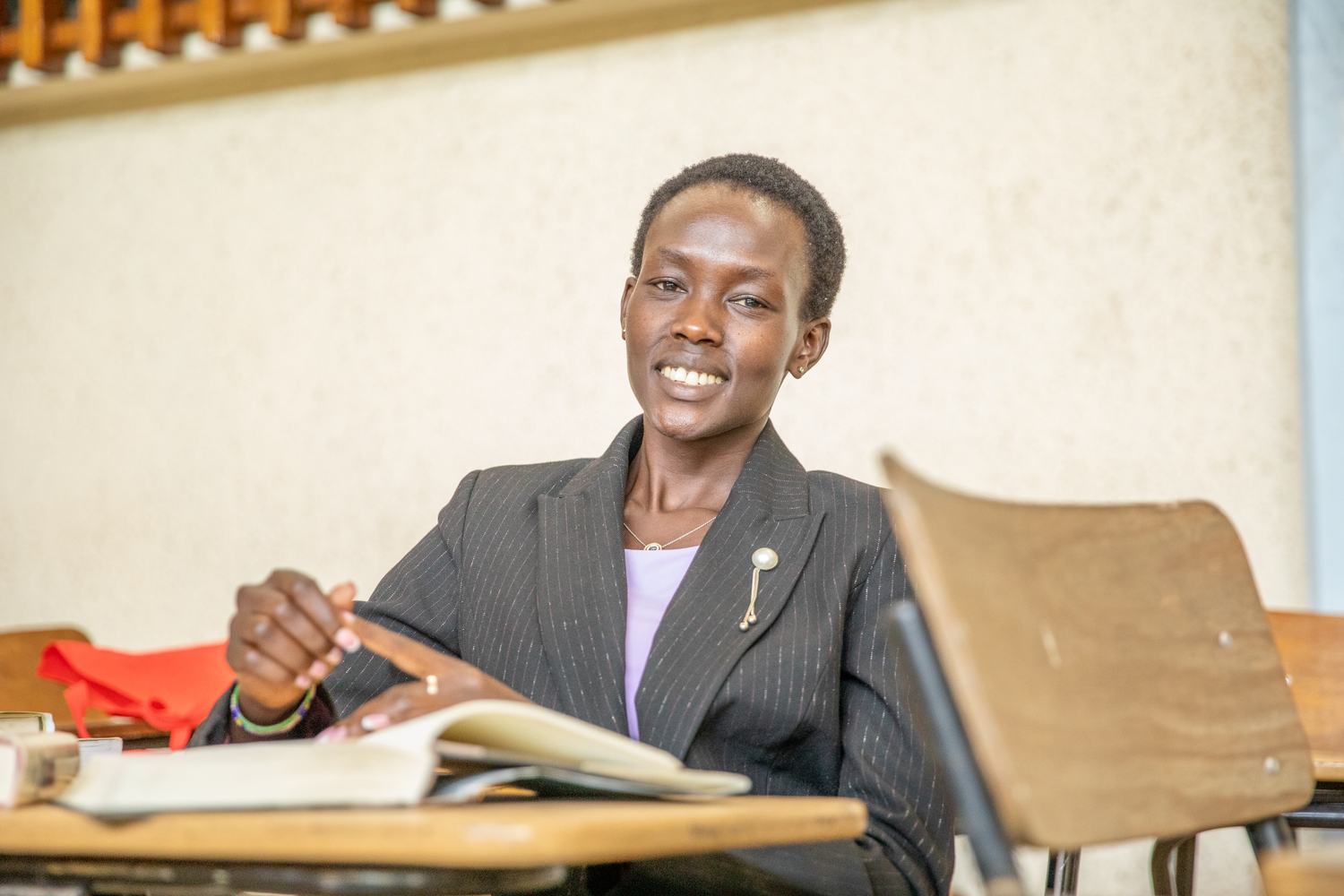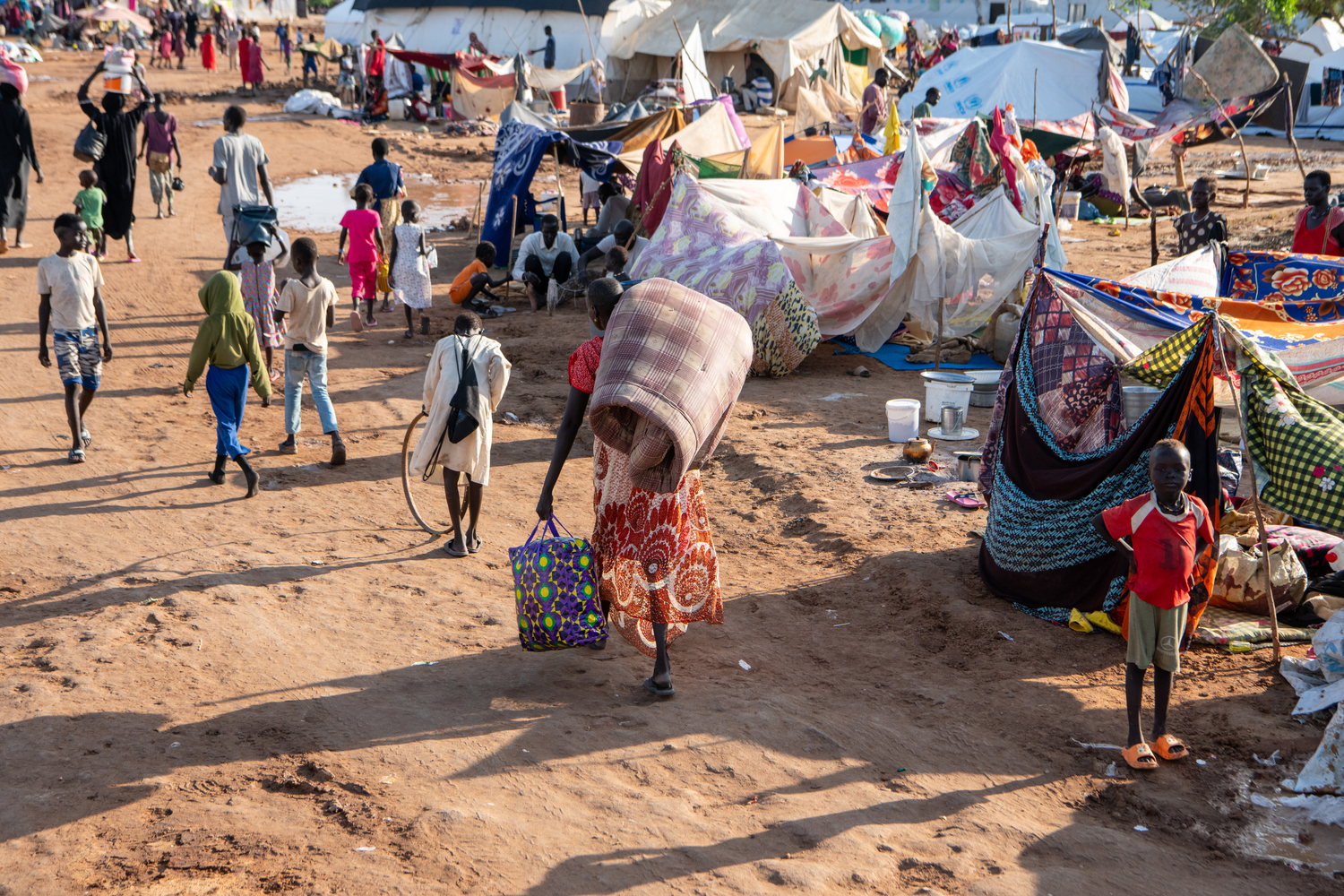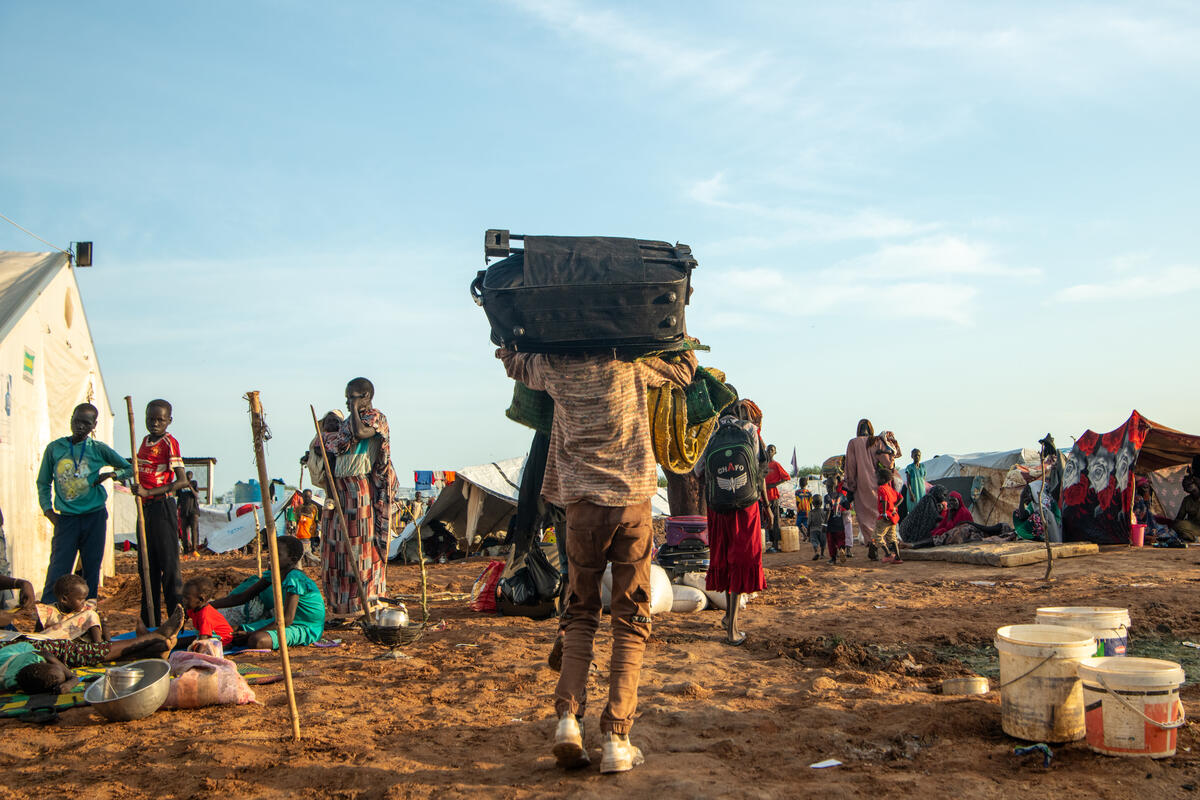Yida: Life on the South Sudan border
Yida: Life on the South Sudan border

YIDA, South Sudan, July 4 (UNHCR) - Vivian Tan recently finished a temporary stint as UNHCR's senior regional public information officer for East Africa. Based in Nairobi, she coordinated coverage of the area, including the situation for almost half-a-million Somali refugees in Dadaab, the world's biggest refugee complex, and the unfolding displacement drama in the Sudans. She recently spent a few days in a remote area of South Sudan called Yida, where she discovered the hard way about conditions for tens of thousands of refugees as well as those helping them. Vivian, who will soon be heading to Thailand to become senior regional public information officer for East Asia, writes about this and other experiences.
Vivian's Yida Diary:
There's so much you take for granted when living in a city like Nairobi. Electricity, for one thing. And vegetables. Clean drinking water. Lavatory paper and flush toilets.
Up near the border of Sudan and South Sudan, in a remote spot called Yida where nearly 60,000 Sudanese refugees have gathered by late June, there is none of that. Not for the refugees, and not for the UNHCR colleagues I am living with for four days.
We're visiting from Juba and we've brought a few boxes of fruit and vegetables to supplement the rice-and-beans diet at the UNHCR compound. I've never seen sunburnt faces light up so fast. We have tomatoes and potatoes, they gasp and beam at lunch. Someone unveils a hand of bananas. A mob swoops in, everyone grabs one each and retreats to a corner, eyeing each other suspiciously. One guy rushes to his tent to hide the banana. I feel like I'm watching a wildlife documentary.
The novelty continues into dinner, when partners from other agencies turn up to verify rumours of vegetables in Yida. They walk around with headlights for closer scrutiny. Our whole compound is lit by a single light bulb. Once the generator sputters on, everyone flocks to the bulb like moths, diving for the power bar to recharge their gadgets.
In the dark, there is an occasional stomp and triumphant, "Hah!" Scorpions. Gulp. I check my e-mails with feet dangling in mid-air while colleagues brainstorm ideas for refugee projects like vegetable plots and grinding pots for maize. If they could channel their energy and enthusiasm, they could light up the whole camp.
Network - well that's another problem. I find a colleague standing on top of the car, phone glued to his ear. Another walks around the compound with his mobile strapped to a tall pole while a third perches on a tree branch. All searching for phone signals to tell their loved ones they're okay, even though they're sleeping on a site that was bombed last November.
Vanity goes out the window in a place like Yida. I haven't looked in the mirror in days. Pass a colleague one morning and he's got toothpaste froth around his mouth. Lick my lips and realize I've been walking around with an instant coffee moustache. Bed head? Just slap on a UNHCR cap until your next shower. There are people I wouldn't recognize without their caps.
Modesty is passé when you have to relieve yourself in a hole in the ground that's buzzing with flies or when a shower means cupping cold water from a bucket over your head, which is pointless because you get sweaty again after five minutes. Some do away with the formalities completely, earning nicknames like "Dirty Fred."
Only one man - our security officer - hasn't let himself go. He puts hot coal in an old iron and starts pressing his T-shirts over a carefully folded UNHCR blanket. Maybe it has nothing to do with pride. Maybe he's trying to kill the eggs of water-borne worms or flies that could burrow under his skin.
I don't know which scares me more - the thought of maggots crawling under my skin, or the risk of bombs falling in Yida. I'm lucky that I can pop in and out, and admire my colleagues for: Their decision to live close to a volatile border because the refugees don't want to move inland; their tolerance for the same diet of rice and beans every day. Some seem to live on cigarettes and coffee alone; their generosity with toilet paper and bottled water, only available an hour's drive away; their stoicism in the face of diarrhoea; their nonchalance towards fat shiny green-eyed flies buzzing out of their latrines; the audacity to wear flip-flops in scorpion-infested terrain; the gift of sleeping through long bumpy drives with dignity intact, mouths and knees closed; and their humour in rough times.
In short, UNHCR field work at its best.

